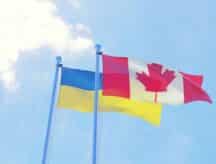Why a Canadian PR may lose their status
According to a 2021 news release, Canada welcomed its highest-ever number of immigrants to the country last year and immigration accounts for around 75% of Canada’s population growth. Projections from that same release suggest that immigrants may represent up to 30% of Canada’s total population by 2036, up 9.3% from 2011 (20.7%).
Discover if You Are Eligible for Canadian Immigration
A big part of Canada’s immigration picture is Canadian permanent residence. As of 2021, there are eight million Canadian permanent residents living across the country. On top of that, there is an entire three-year plan called the Immigration Levels Plan that Canada dedicates specifically to projecting how many permanent residents (PRs) it aims to admit over that time. The latest levels plan (2022-2024) projects that Canada will aim to welcome over 400,000 new PRs each year.
Current discourse around PR in Canada
The dominant discourse around PR in Canada revolves around teaching immigration hopefuls how to come to Canada as permanent residents. There are undoubtedly many ways to accomplish this goal, whether that be through economic class immigration, family class immigration or another means.
What we would like to cover today, conversely, is how it is possible for a Canadian permanent resident to lose their PR status.
Different ways a PR in Canada can lose their permanent resident status
There are several reasons that this can happen to someone who has established themselves as a permanent resident in this country.
1. If they have become a Canadian citizen
2. If it has been determined that they have not complied with the PR residency obligation
Generally, permanent residents in Canada must meet a residency obligation that requires them to live in Canada for 730 days (two years) out of every five-year period.
There are some exceptions to being physically present in Canada, which would still allow Canadian PRs to meet this obligation. PRs will still be seen as complying with the above residency obligation if, for 730 days over every five-year period:
- They are outside Canada accompanying a Canadian citizen spouse, common-law partner, or parent (if the Canadian PR in question is a child)
- They are employed full-time outside of Canada by a Canadian business or in the “federal public administration/public service of a province”
- They are outside Canada accompanying a Canadian PR spouse, common-law partner, or parent (if the Canadian PR in question is a child) who falls under the above category
- They are “referred to in regulations providing for other means of compliance”
3. If there is a removal order in effect against them
4. If the person’s refugee protection order has ceased
For several different reasons, authorities may determine that a Canadian PR who came to this country under the Refugee Protection Act no longer requires such protection. Those reasons can include:
- The Canadian PR has voluntarily reavailed themself of the protection of their country of nationality
- They have voluntarily reacquired their nationality
- They have acquired a new nationality and now enjoy the protection of the country of that new nationality
- They have voluntarily become re-established in the country that they once left to claim refugee protection in Canada
- The reasons for which they sought protection have ceased to exist
5. If their refugee protection claim approval has been vacated
In some cases, a refugee protection claimant may have their approval reversed because they were found to have directly or indirectly misrepresented or withheld important facts related to their claim.
6. If a person’s application to renounce their permanent resident status is approved
What happens after someone loses their Canadian PR status?
The next steps after losing Canadian PR status vary based on the reason that an individual’s permanent resident status was revoked.
For instance, in a situation where a Canadian PR voluntarily renounces their status, they will become a temporary resident in Canada for six months unless either of the following two instances occurs:
- The individual renouncing their Canadian PR status applies to do so directly at a Canadian port of entry
- The individual renouncing their Canadian PR status is not physically present in Canada on the day that their application for temporary residence is approved
Understanding the details of permanent residence in Canada can be confusing. However, retaining an immigration lawyer can make things a lot easier. Immigration law professionals can:
- Help prepare an application
- Ensure applicants avoid mistakes
- Respond on an applicant’s behalf to the Canadian government
- Use their expertise to avoid unnecessary delays throughout the different application steps and application processing
Discover if You Are Eligible for Canadian Immigration
© Want to advertise on CIC News? Click here to contact us.
- Do you need Canadian immigration assistance? Contact the Contact Cohen Immigration Law firm by completing our form
- Send us your feedback or your non-legal assistance questions by emailing us at media@canadavisa.com






